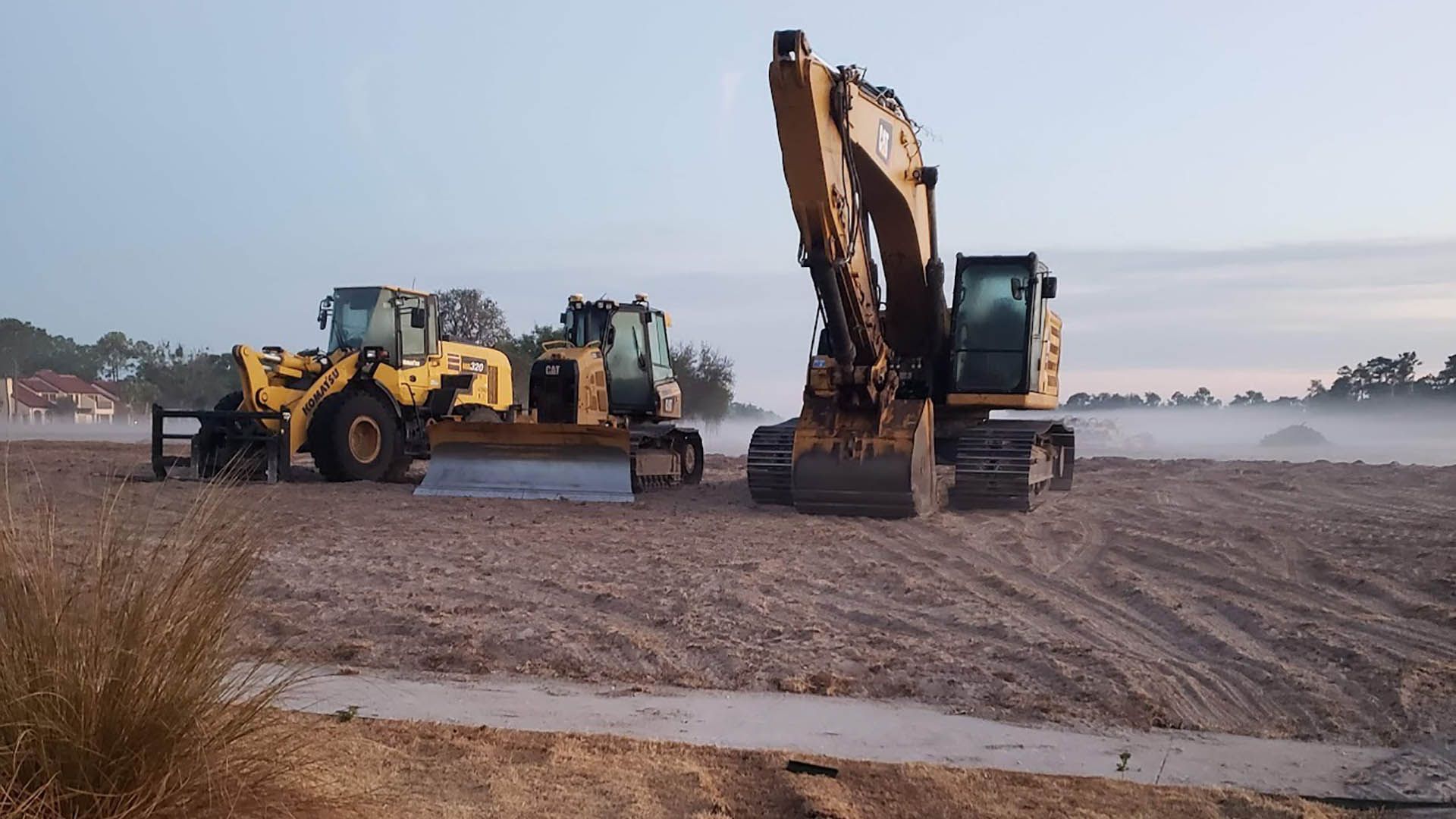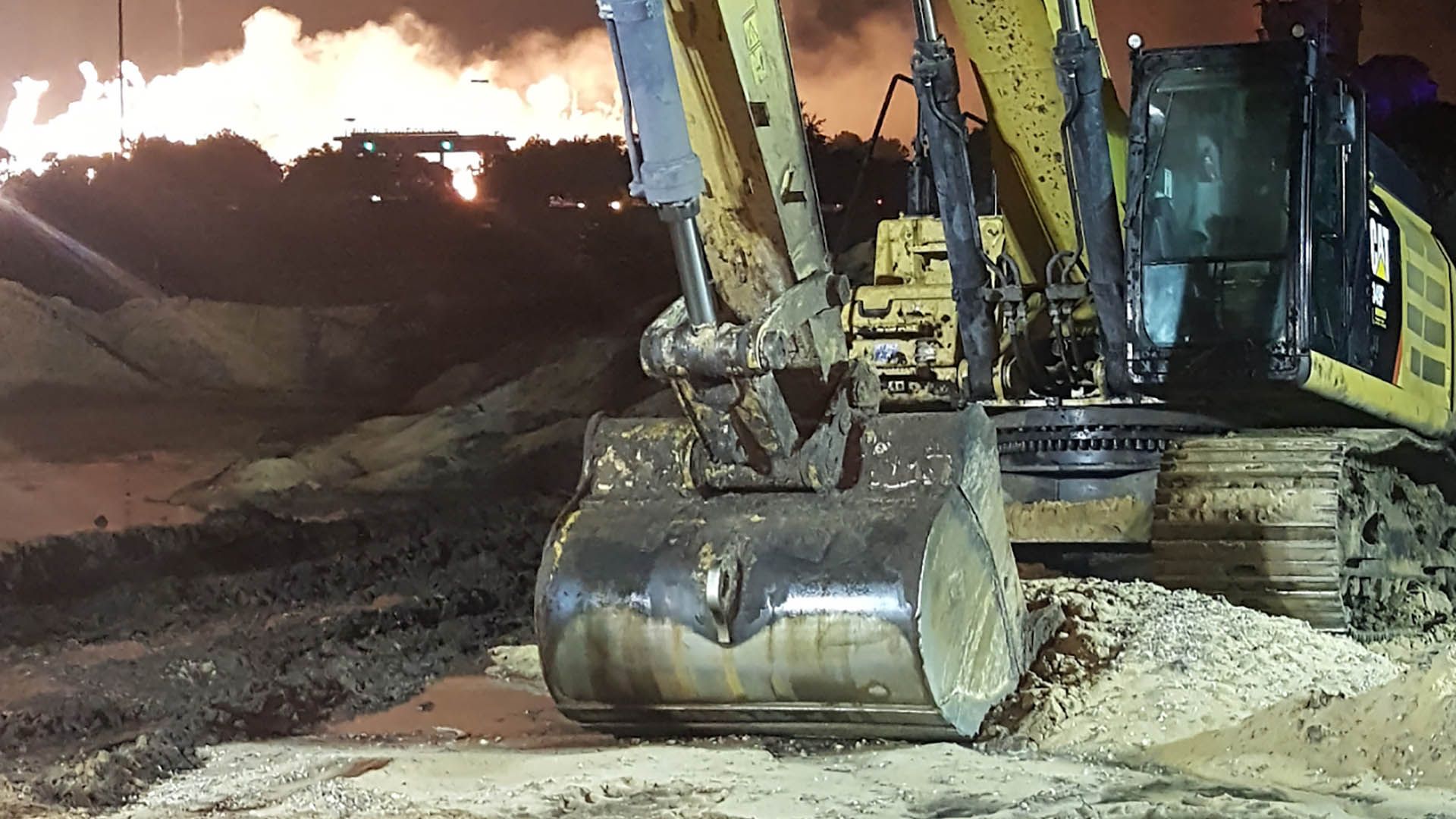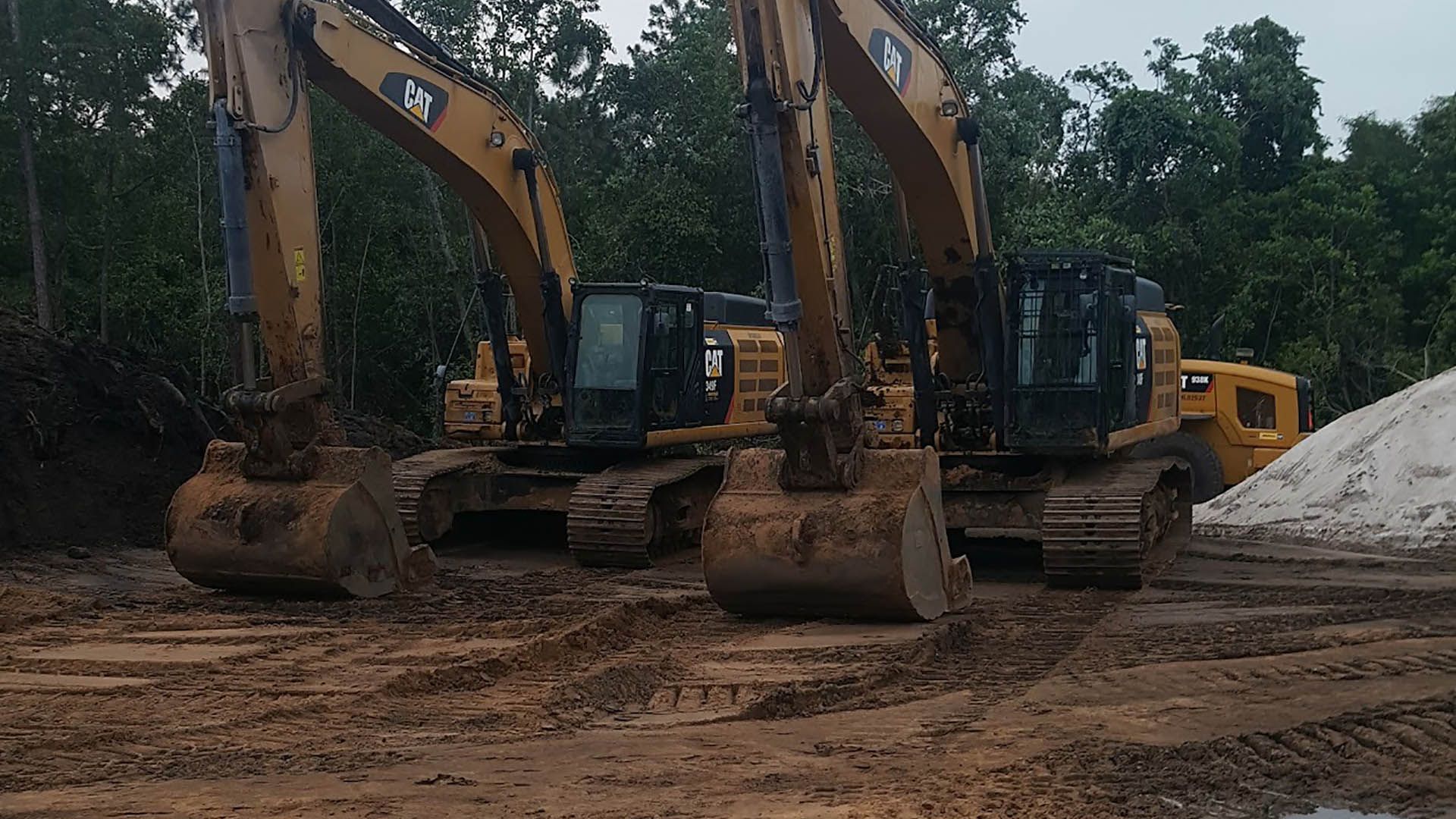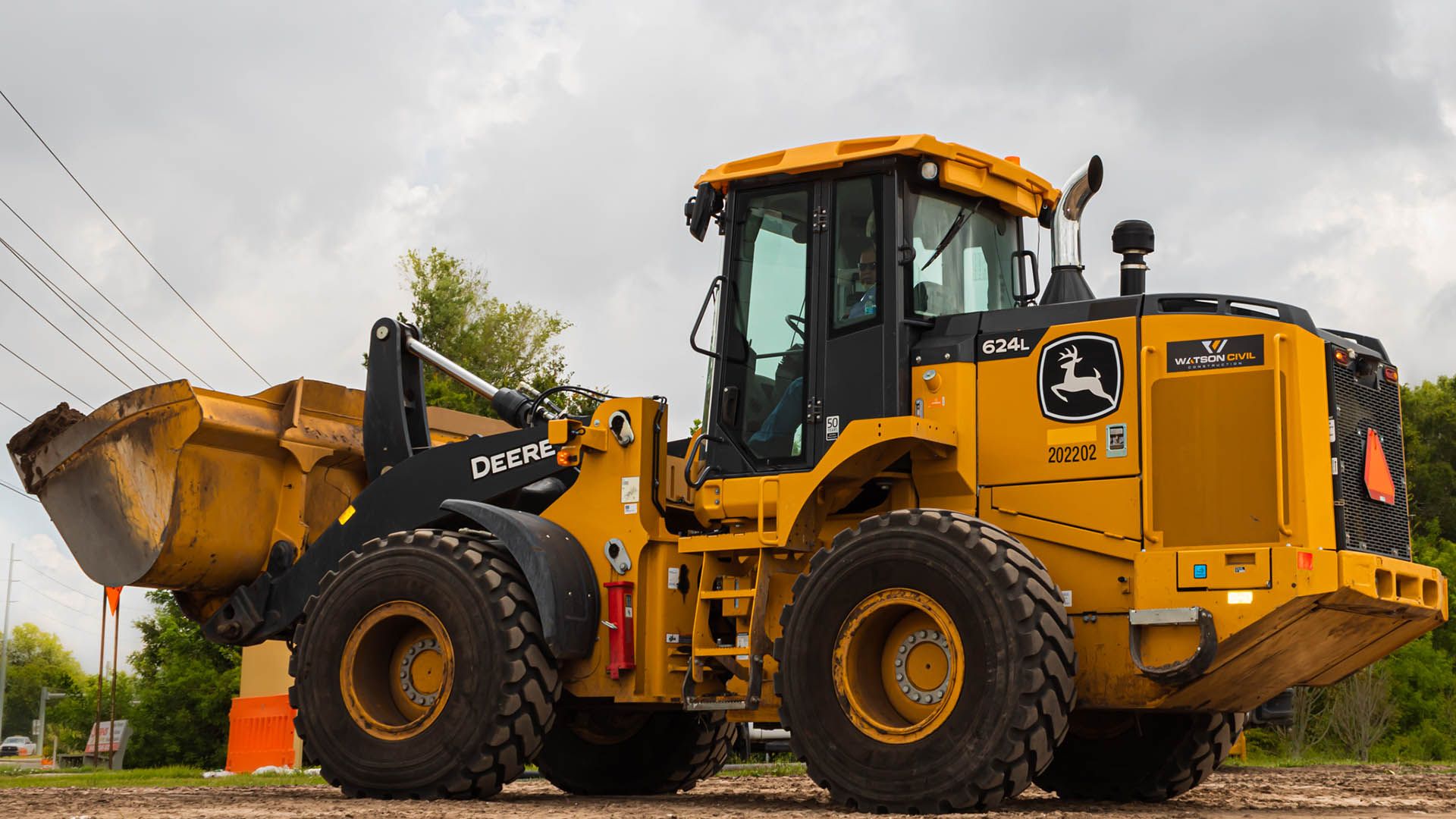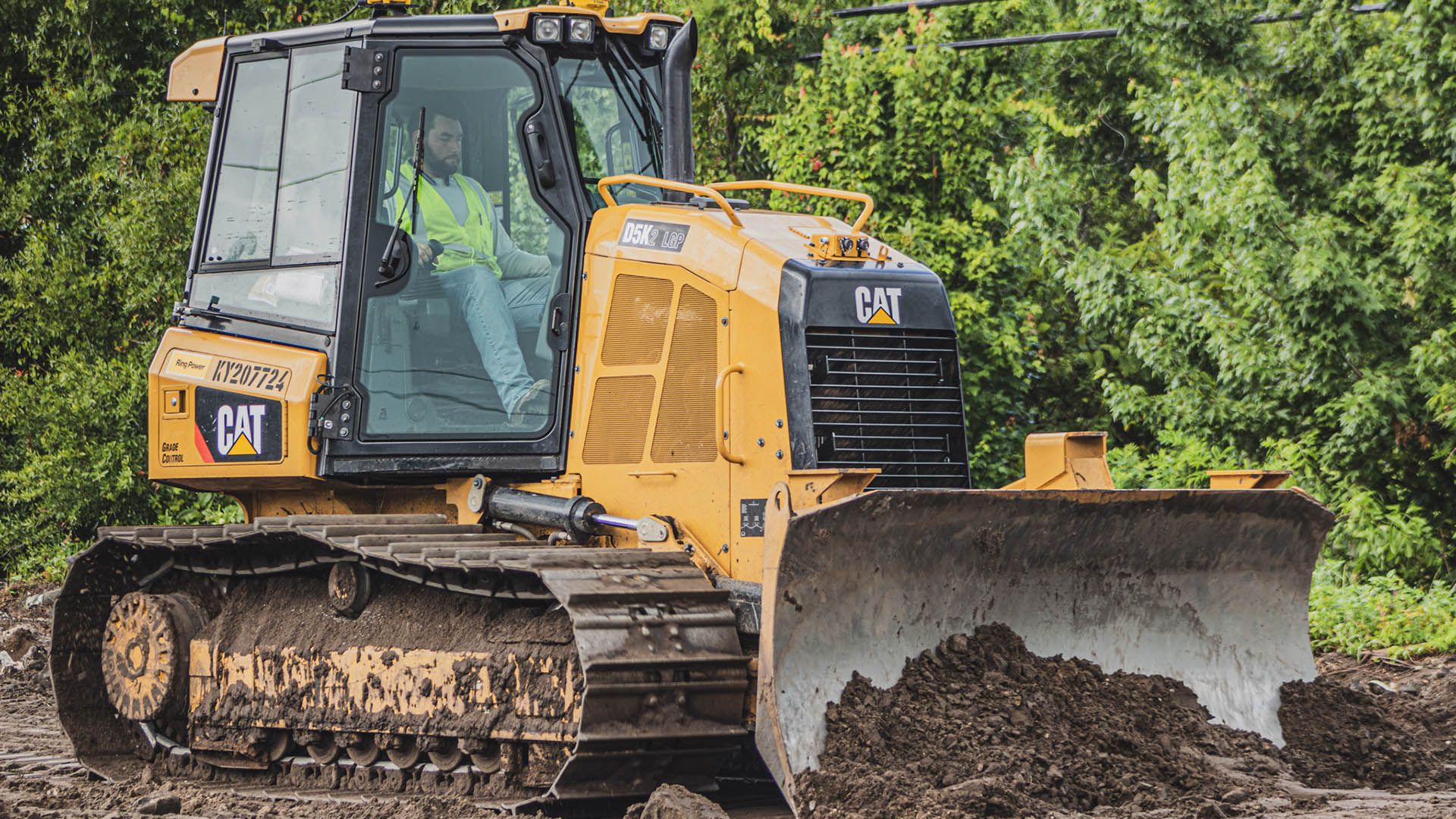
Watson Civil is capable of heavy civil earthwork involving reshaping, excavating, moving, and compacting large volumes of soil and rock to create infrastructure projects such as roadways, bridges, golf courses, dams, private site development, and other major structures. It primarily focuses on the manipulation of the earth's surface to accommodate the desired design and specifications of the project. This includes, but is not limited to:
Excavation:
Excavation involves the removal of soil, rock, or other materials from the ground to create space for construction. This can include digging trenches, ponds, foundation pits, or removing unwanted materials from the site.
Grading:
Grading is the process of creating a level or sloped surface by adding or removing soil. It ensures that the site meets the required elevations and contours specified in the project design. Grading is crucial for proper drainage and stability of the infrastructure.
Earthmoving:
Earthmoving entails the movement of large quantities of soil, rock, or other materials within the construction site. It may involve using heavy machinery like excavators, bulldozers, scrapers, loaders, or dump trucks to transport and redistribute the materials as needed.
Slope Stabilization:
In areas with steep slopes or unstable soil conditions, slope stabilization techniques are employed. These may include constructing retaining walls, soil nailing, rock bolting, or installing geosynthetic materials to prevent erosion and maintain the stability of the earthwork.
Throughout these activities, Watson Civil project managers, engineers, dirt crews and surveyors work closely to ensure the earthwork adheres to the project specifications, meets safety standards, and complies with environmental regulations. Heavy civil earthwork requires skilled operators and equipment capable of handling large-scale excavation and movement of materials to shape the land according to the project's design and requirements.

